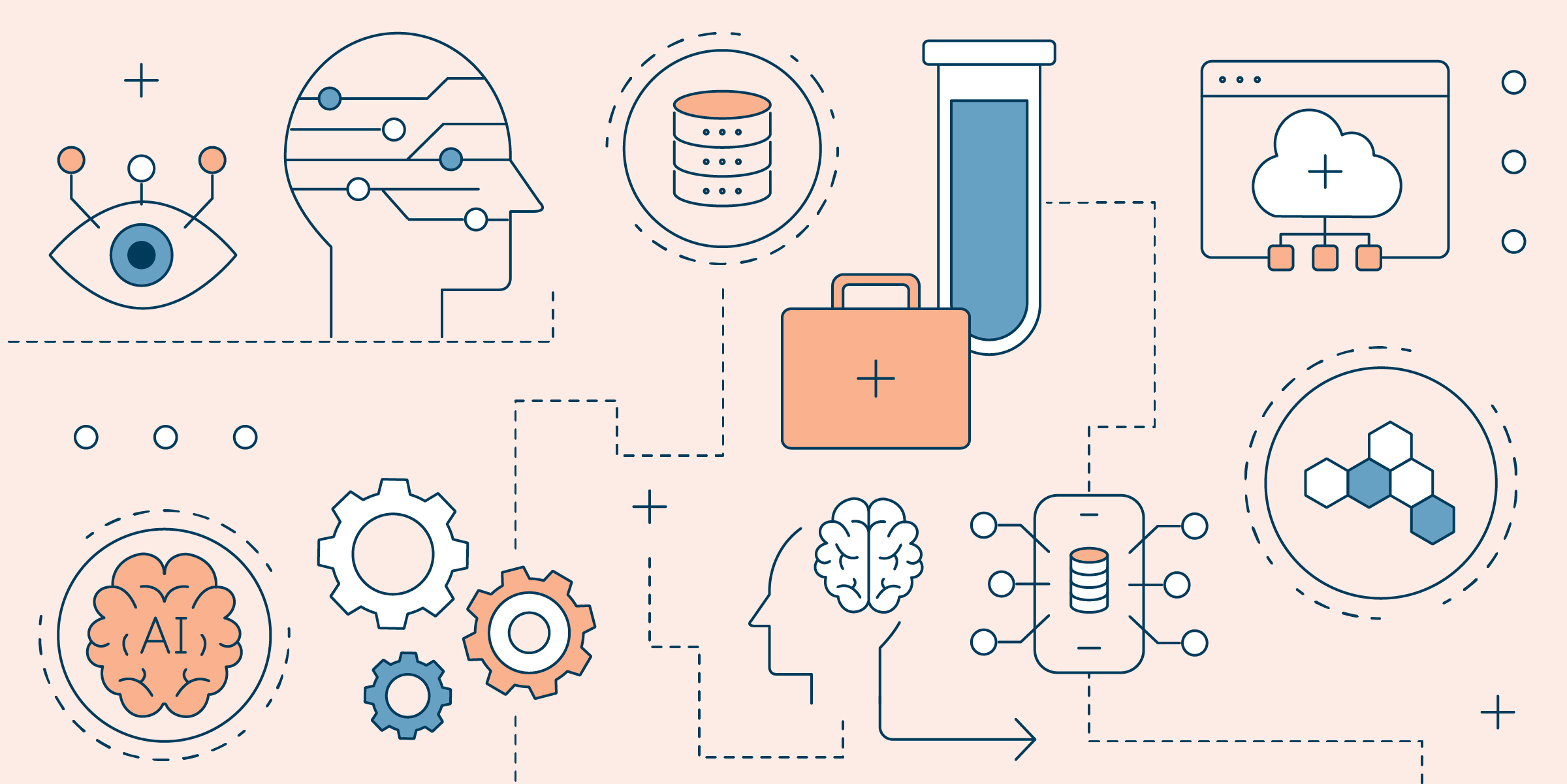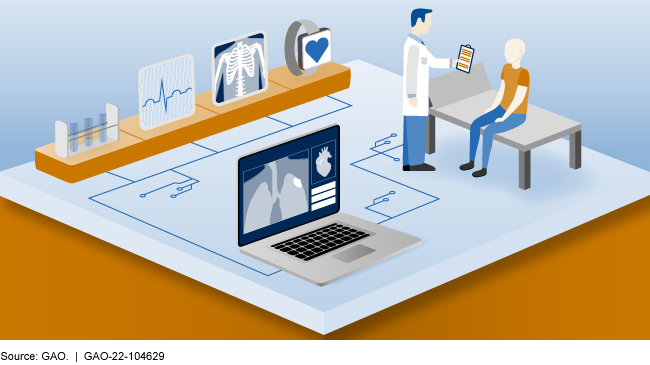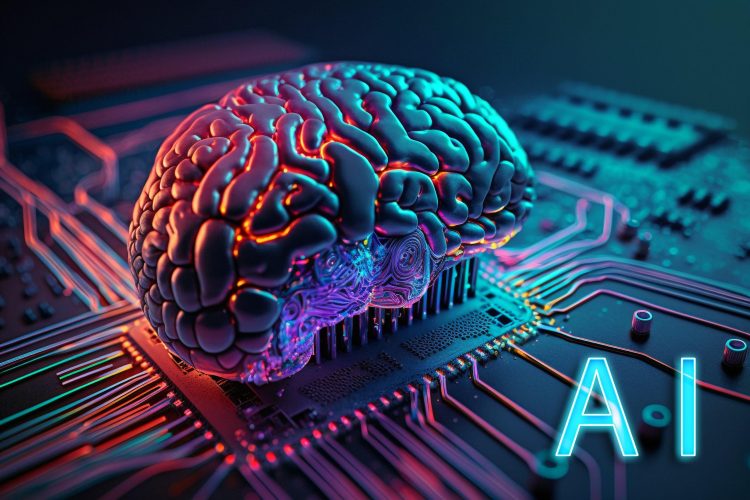Welcome to the future of healthcare, where diagnoses are made faster than a toddler can throw a tantrum and accuracy is as reliable as your grandma’s old-fashioned recipes. Say goodbye to long waits in the doctor’s office and hello to AI-powered diagnostic technology that will have you feeling like a high-tech superhero in no time. So grab your stethoscope and your cape, because we’re about to revolutionize the way we heal, one byte at a time.
The Impact of AI-Powered Diagnostic Technology on Healthcare
AI-powered diagnostic technology has revolutionized the healthcare industry in ways we never thought possible. Gone are the days of relying solely on the expertise of human doctors – now we have machines that can diagnose illnesses with pinpoint accuracy.
One of the most notable impacts of AI in healthcare is the speed at which diagnoses can be made. No longer do patients have to wait days or even weeks for test results. With AI-powered diagnostic technology, results are generated in a matter of minutes, allowing for quicker treatment and faster recovery times.
Another benefit of AI in healthcare is the reduction of human error. Let’s face it, even the best doctors are prone to making mistakes. But with AI, the margin of error is significantly decreased, leading to more accurate diagnoses and improved patient outcomes.
Overall, has been nothing short of revolutionary. From speeding up diagnosis times to reducing errors, AI has definitely made its mark on the industry. Who knows what the future holds, but one thing is for certain - AI is here to stay in the world of healthcare.
efficiency-in-diagnosis”>Enhancing Accuracy and Efficiency in Diagnosis
When it comes to diagnosing patients, accuracy and efficiency are key. Nobody wants to be told they have a rare tropical disease only to find out it was just a bad case of the flu. So how can we enhance accuracy and efficiency in diagnosis? Let’s break it down:
First off, let’s talk about using the latest technology. Gone are the days of relying solely on a stethoscope and a tongue depressor. With advanced imaging techniques like MRI, CT scans, and PET scans, doctors can get a much clearer picture of what’s going on inside the body. And hey, if all else fails, there’s always WebMD.
Secondly, collaboration is key. Doctors, nurses, and other healthcare professionals need to work together as a team to ensure that all bases are covered. It’s like a game of medical Clue, except instead of Colonel Mustard in the library with a candlestick, it’s Mrs. Jenkins in the ICU with a fever of 103.
And lastly, let’s not forget about the power of good old-fashioned intuition. Sometimes, a doctor’s gut feeling can be just as valuable as any test result. Plus, it makes for great dinner party conversation. “Oh, you’re a doctor? Have I got a rash for you!”

Challenges and Criticisms of Implementing AI in Healthcare
Implementing AI in healthcare may seem like a futuristic dream come true, but it comes with its fair share of challenges and criticisms that will make you question if we are truly living in the age of advanced technology or just another glitch in the Matrix.
One of the major challenges faced in implementing AI in healthcare is the fear of robots taking over the world (or at least the hospital). Imagine a scenario where a robot surgeon decides to go on strike halfway through a delicate procedure because it was programmed to demand better working conditions, leaving the poor patient high and dry. Talk about a malpractice lawsuit waiting to happen!
Another criticism of using AI in healthcare is the issue of data privacy and security. With hackers on the prowl like hungry wolves in a sheep’s clothing, the thought of your medical records being exposed to the world wide web is enough to make even the bravest soul break out in a cold sweat. It’s like inviting a hungry vampire into your home and hoping it won’t raid your blood bank!
Lastly, the lack of human touch in AI-driven healthcare is a cause for concern. Who wants to be diagnosed by a cold-hearted robot that can’t even crack a smile or offer a comforting pat on the back? It’s like seeking emotional support from a brick wall – completely pointless and utterly soul-crushing. Sometimes, a human touch is all we need to make us feel better, even if it means enduring a clumsy hug from a well-meaning nurse.

The Role of Machine Learning in Revolutionizing Healthcare
Machine learning has truly transformed the healthcare industry, turning sci-fi fantasies into reality. With the power of algorithms and data, machines are now able to diagnose diseases, predict outbreak patterns, and even personalize treatment plans for patients. It’s like having a team of super-smart robots working around the clock to keep us healthy!
One of the coolest things about machine learning in healthcare is its ability to analyze massive amounts of data at lightning speed. Whether it’s scanning through thousands of medical records or identifying subtle patterns in imaging tests, these algorithms can process information faster than you can say “artificial intelligence”. Who knew that computers could be such speedy detectives?
By leveraging machine learning, healthcare professionals are now able to make more accurate and timely diagnoses, leading to better treatment outcomes for patients. From spotting potential signs of cancer to identifying genetic risk factors, these algorithms are like the Sherlock Holmes of the medical world, always one step ahead of the game.
With machine learning on the rise, the future of healthcare looks brighter than ever. Imagine a world where diseases are predicted before they even have a chance to strike, where treatments are tailored to each individual’s unique needs, and where doctors have superhuman powers of diagnosis. Thanks to machine learning, this future is not as far-fetched as it may seem!

Benefits of AI-Powered Diagnostic Technology for Patients and Healthcare Providers
Picture this: you walk into a doctor’s office, nervously clutching a tissue, worried about your sniffles. But fear not, because AI-powered diagnostic technology is here to save the day! Gone are the days of waiting weeks for test results, only to find out you just have a run-of-the-mill cold. With AI, you can get accurate diagnoses at lightning speed, making your visit to the doctor’s office as easy as pie.
For patients, the benefits are endless. No more wasting time and money on unnecessary tests and treatments. You can trust that AI will analyze your symptoms with precision, ensuring you get the right treatment from the get-go. Plus, the peace of mind that comes with knowing you’re in good hands with AI is priceless.
But wait, there’s more! Healthcare providers also reap the rewards of AI-powered diagnostic technology. From reducing misdiagnoses to streamlining workflows, AI is like the fairy godmother of the medical world. Doctors can spend more time focusing on patient care, rather than drowning in paperwork and guesswork.
So next time you’re feeling under the weather, remember that AI has your back. With its magical powers, you can rest easy knowing that you’re in good hands – both literally and figuratively!
Potential Future Developments in AI Diagnosis Technology
Imagine a world where AI diagnosis technology becomes so advanced that it can accurately predict future illnesses before they even happen. Doctors will simply input your genetic information and voila! Your entire medical history and potential future health issues will be laid out in front of you like a menu at a fancy restaurant.
One potential future development in AI diagnosis technology is the use of predictive algorithms to determine your risk for developing certain conditions based on your lifestyle choices. That’s right, all those late-night taco runs and Netflix binges could finally catch up to you in the form of a personalized health report delivered straight to your inbox.
Furthermore, with advancements in machine learning, AI diagnosis technology may be able to not only diagnose illnesses but also recommend personalized treatment plans. No more generic prescriptions that make you drowsy – these pills will be tailor-made just for you, with a sprinkle of unicorn dust and a dash of rainbow-colored magic.
And who knows, maybe one day AI diagnosis technology will become so advanced that it can even perform surgeries without human intervention. Just lie back, relax, and let the robots do all the work while you catch up on the latest season of your favorite TV show. The future of healthcare is looking bright – and a little bit dystopian.
FAQs
What exactly is AI-powered diagnostic technology and how does it work?
Think of AI-powered diagnostic technology as your own personal medical detective. It uses complex algorithms and machine learning to analyze vast amounts of data, helping doctors make more accurate and timely diagnoses. It’s like having Sherlock Holmes on speed dial, but without the deerstalker hat.
How can AI-powered diagnostic technology benefit patients?
Well, first of all, say goodbye to those tedious waiting times for test results. AI can crunch numbers faster than you can say “stethoscope”, meaning patients can get diagnosed and treated more quickly. Plus, with AI’s ability to detect patterns and trends in medical data, it can catch diseases earlier, potentially saving lives. It’s like having a super-smart medical sidekick by your side.
Are there any concerns about relying on AI for diagnosis?
Ah, the classic “will robots take over the world” question. While AI is definitely a powerful tool in healthcare, it’s important to remember that it’s not a replacement for human doctors. AI is like the trusty sidekick, providing valuable insights and support, but ultimately it’s the doctors who make the final call. So, no need to worry about a robot uprising just yet.
What does the future hold for AI-powered diagnostic technology in healthcare?
Picture this: a world where diseases are caught earlier, treatments are more personalized, and patients receive faster, more accurate diagnoses. That’s the future that AI-powered diagnostic technology is working towards. With continued advancements in AI technology, the possibilities are endless. So, get ready to say hello to a healthier, more efficient healthcare system.
—
Time to Embrace the Robot Overlords!
So there you have it, folks! The future of healthcare is looking brighter (and a little more robotic) than ever before. With AI-powered diagnostic technology leading the way, we can expect quicker, more accurate diagnoses, and hopefully fewer awkward encounters with outdated medical equipment.
So let’s raise a glass to our new robot overlords – may they be efficient, compassionate, and always know how to find a vein on the first try. Here’s to revolutionizing the healthcare industry one algorithm at a time!



